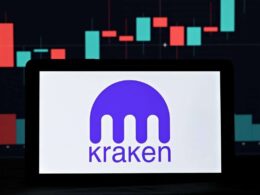The blockchain-based collateral settlement application of JPMorgan Chase & Co., known as the Tokenized Collateral Network (TCN), has recently gone live and completed its first transaction involving prominent clients BlackRock and Barclays.
Seamless Collateral Conversion
According to Bloomberg, the TCN enabled BlackRock to effortlessly convert shares from one of its money market funds into digital tokens. These tokens were then transferred to Barclays as collateral for an over-the-counter derivatives trade.
“The Tokenized Collateral Network revolutionizes the collateral settlement process, offering greater efficiency and speed,” says Tyrone Lobban, head of Onyx Digital Assets at JPMorgan.
The TCN had previously been tested internally in May 2022, demonstrating its potential by transferring tokenized representations of shares from a BlackRock money market fund for collateral on JPMorgan’s private blockchain platform, Onyx Digital Assets.
Now live, TCN is set to gain wider adoption, with a pipeline of clients and transactions already in progress, as stated by Ed Bond, head of trading services at JPMorgan.
Unprecedented Speed and Efficiency
An outstanding feature of TCN is its remarkable speed compared to traditional collateral settlement methods. While conventional systems may take a full day to settle collateral, TCN offers nearly instant settlement, setting a new industry standard.
“With TCN, we are reducing settlement times and improving market efficiency,” adds Tyrone Lobban.
- TCN enables rapid collateral movement, drastically reducing settlement times.
- TCN’s near-instant settlement sets a new industry standard and significantly improves efficiency.
Expansion and Future Possibilities
JPMorgan aims to expand TCN to cover a wider range of assets, including equities and bonds. This move will provide institutions with greater flexibility in meeting their collateral requirements, ultimately enhancing their trading capabilities.
“By expanding TCN, we are paving the way for improved market efficiency and capital utilization,” says Ed Bond.
If widely implemented, TCN could potentially free up capital for use as collateral in ongoing transactions, further improving overall market efficiency.
The Ripple Effect
JPMorgan’s TCN represents a significant breakthrough in blockchain technology and poses a challenge to the dominance of platforms like Ethereum in the blockchain market. It also highlights the potential for private bank networks to gain considerable traction.
The JPM Coin Connection
In addition to TCN, JPMorgan operates JPM Coin, a blockchain-based payment system. Launched in 2019 for dollar payments, this platform allows wholesale payments clients to transfer dollars or euros between JPMorgan accounts worldwide, using blockchain technology instead of traditional payment methods.
In June, JPMorgan expanded its JPM Coin blockchain payment service to include euro-denominated transactions for corporate clients.
















